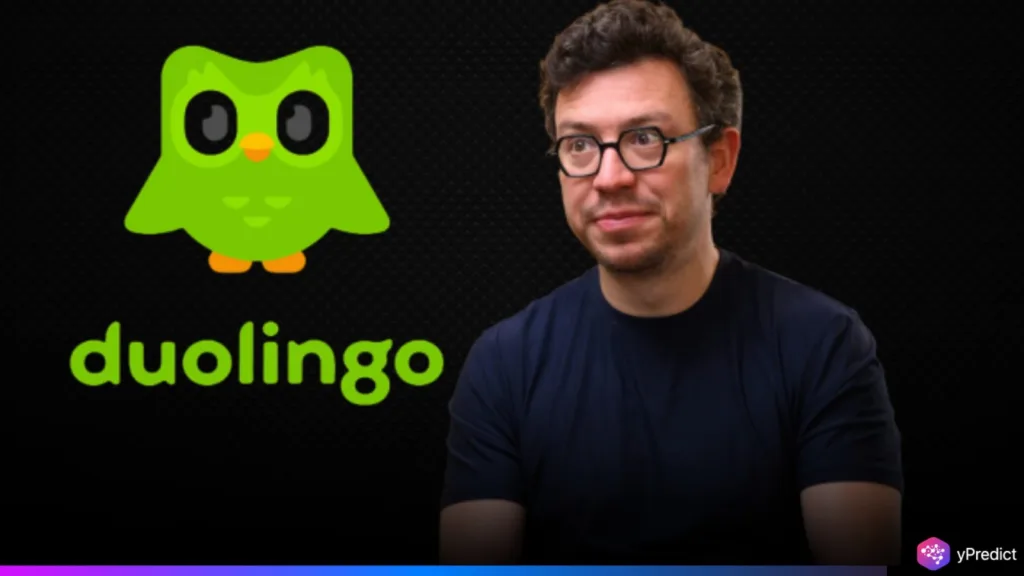
Duolingo, the world’s leading language-learning platform, has withdrawn its controversial “AI-first” strategy after widespread backlash from users, educators, and investors. Duolingo’s CEO, who previously claimed AI could replace aspects of teaching, now insists it will support rather than replace employees. This sudden reversal follows intense public criticism, internal pushback, and investor pressure, sparking broader debates on ethical AI use in education.
Duolingo AI First Strategy Meets Fierce Resistance
Duolingo CEO Luis von Ahn issued a public statement after receiving significant backlash over the company’s recent AI-first strategy announcement. Critics condemned his earlier remarks suggesting AI could eventually replace tasks previously handled by the company’s contract workforce. In response, von Ahn reassured the public and employees, emphasizing Duolingo’s commitment to hiring and supporting its existing human workforce.
In a recent LinkedIn post, von Ahn acknowledged that his earlier messaging may have lacked precision and inadvertently caused confusion and concern. While reaffirming Duolingo’s long-term commitment to leveraging AI, Von Ahn stressed that the goal is not to displace employees but to enhance the company’s capabilities. Clarifying his earlier stance, he said
To be clear: I do not see AI as replacing what our employees do (we are in fact, continuing to hire at the same speed as before). I see it as a tool to accelerate what we do, at the same or better level of quality. And the sooner we learn how to use it and use it responsibly, the better off we will be in the long run.
Von Ahn acknowledged that the future implications of AI are unpredictable, but emphasised that its revolutionary impact on the workplace is unavoidable. To assist staff in adapting, the corporation is implementing workshops, developing advisory groups, and setting aside time for experimentation and learning.
In a company-wide memo distributed in April 2025 and later posted on LinkedIn, von Ahn described Duolingo’s formal transition to an AI-first approach, comparing it to the company’s early and successful bet on mobile platforms in 2012.
The statement sparked immediate outrage on social media, with users accusing the firm of prioritising efficiency over people. The debate erupted after Von Ahn said on a podcast that AI would soon outperform human educators in terms of efficacy. He also stated that schools will most certainly continue to exist primarily for childcare purposes, which provoked further indignation.
Silent Social Media Strategy Fuels Speculation
The fallout from the AI announcement culminated in a surprising move on May 17, when Duolingo wiped its Instagram and TikTok accounts clean, leaving behind only cryptic bios and symbolic posts, including phrases like “gonefornow123” and “real eyes realize real lies.”
This social media lockdown followed a string of unique marketing stunts by Duolingo’s in-house creative team, which had previously gone viral with campaigns including “Duo is Dead” in February 2025, which had over a billion organic views.
The company’s unexpected departure from social media generated doubts about whether it was responding to internal discontent or simply performing another clever PR operation. A later video titled “Exposing Duolingo” revealed a possible narrative twist, but it is unclear whether it reflects genuine staff frustration or is part of a planned effort.
Conclusion
Duolingo’s pullback from its AI-first strategy underscores the need for ethical, transparent, and human-centered innovation in EdTech. As AI adoption grows, companies must balance efficiency with trust and clear communication. Duolingo’s measured approach to criticism serves as a cautionary account for other digital companies that, in the rush to adopt AI, prioritising trust, communication, and stakeholder involvement is not an option; it is required for long-term credibility and success in the EdTech sector.






